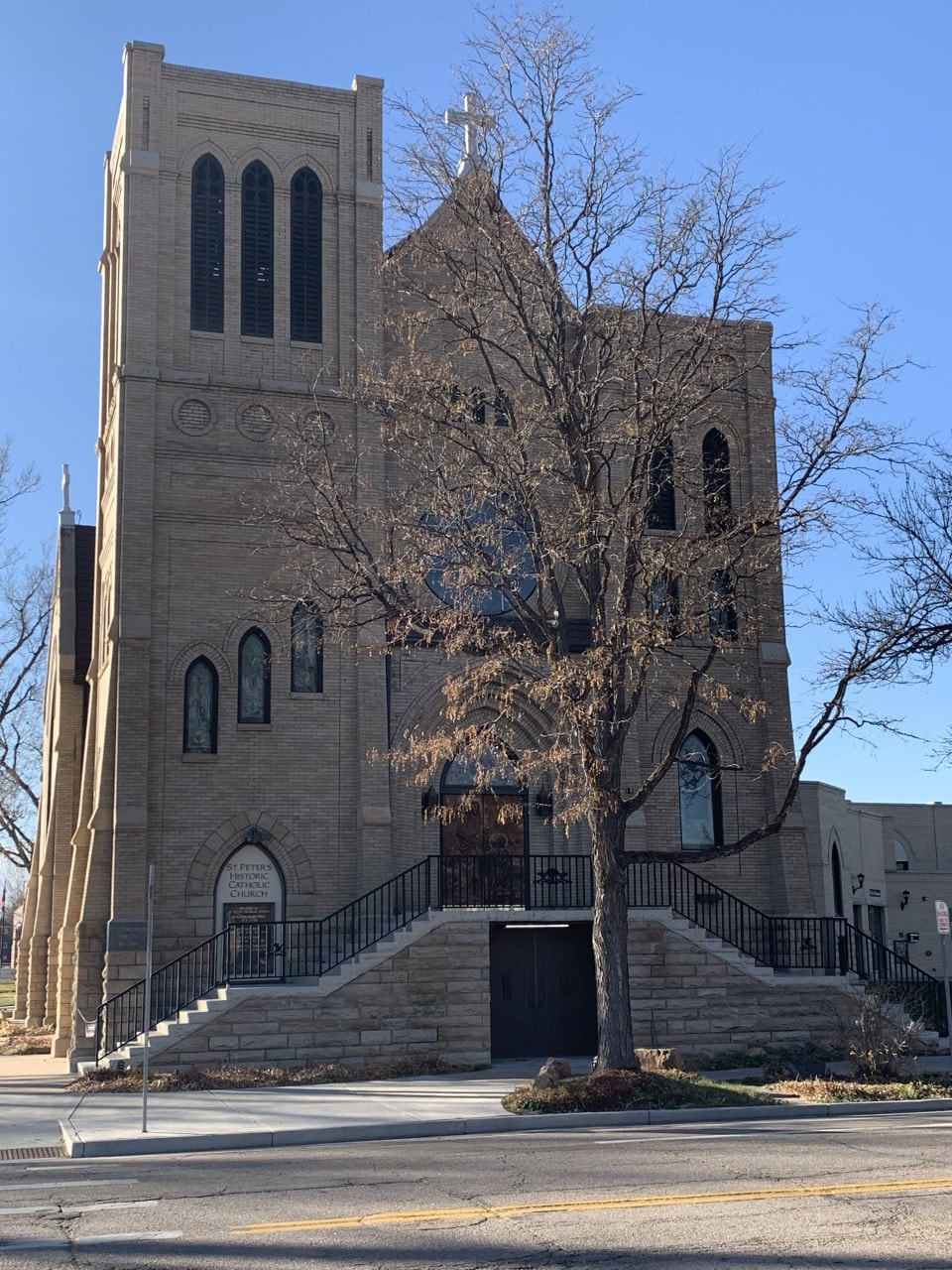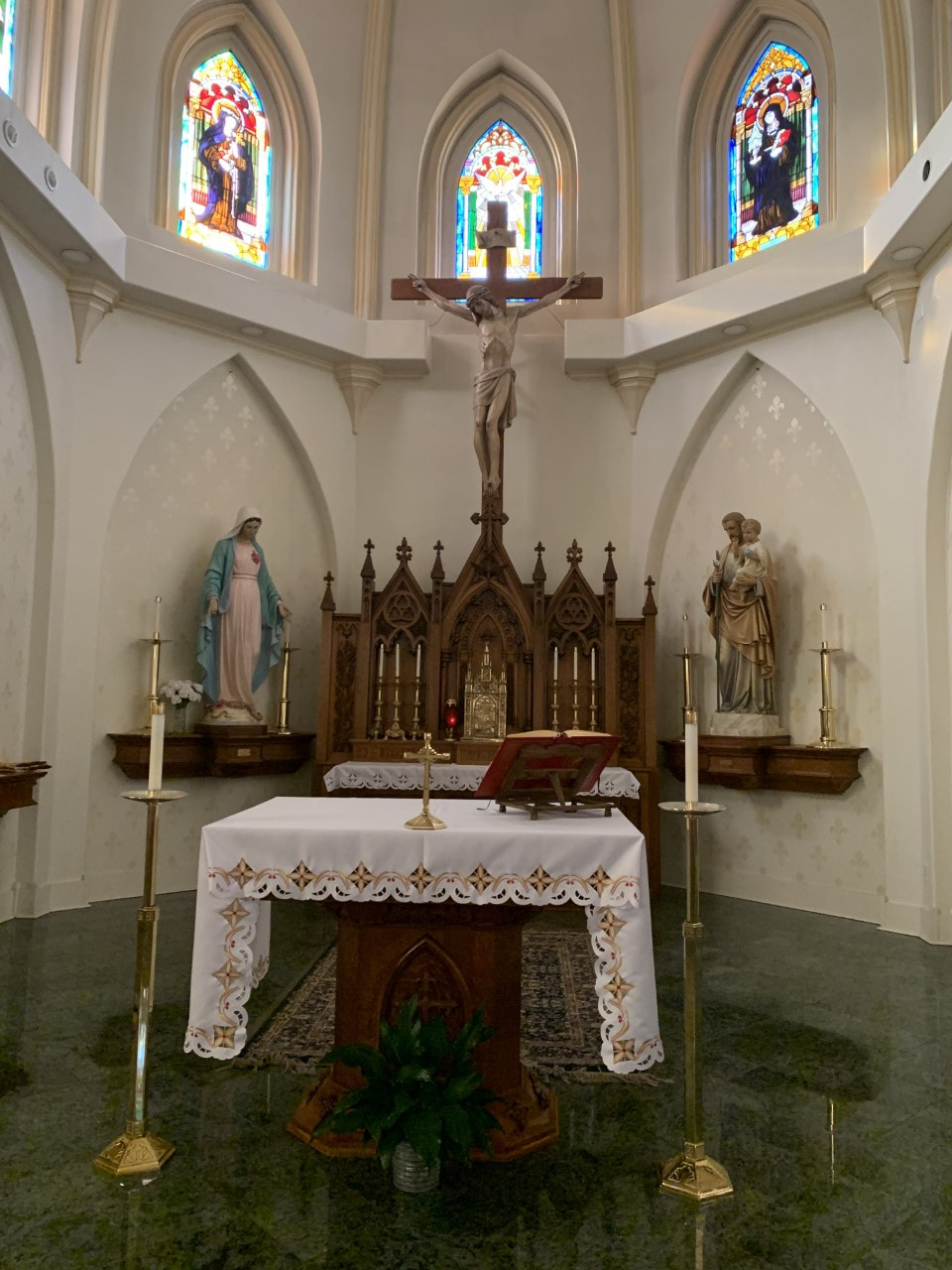We were able to maintain our physical bodies with food during the lockdown which lasted much longer than “two weeks to flatten the curve,” but the Bread of Heaven was just too much of a risk for people to endure. Heck, didn’t the government cronies realize that we didn’t even need to put arrows on the floor to show the flow of foot traffic in our churches? People already knew we only travel one way down an aisle for Holy Communion. Unfortunately, even though we already had a solid system in place, we were still unqualified to be essential.
Catholic identity is a thing of the past. Do you remember years ago when Catholics never ate meat on any Friday? People quickly figured out who was a Catholic on any Friday throughout the year if there was a meal being enjoyed outside the family home. It set us apart. Now, we are lucky to even remember not to eat meat on the six Fridays of Lent. It is easy to forget when one is not in the habit.
Not eating meat on a Friday may seem like a small hook on which to hang my Catholic identity hat. However, it is a vital piece of a much larger puzzle. We gave up sacrifice. There is still supposed to be some type of mortification of our senses each Friday throughout the year. It does not have to be giving up meat, but there is still supposed to be a sacrifice. What is the percentage of Catholics who actually follow that tradition?
If we gave up sacrifice, what else have we given up? How would you rate the general Catholic population regarding “spiritual discipline?” Do you think most Catholics pray frequently, faithfully, and fervently? Do you believe most Catholics participate in the sacramental life of the Church with zeal and fervor? Do you believe Catholics are seriously trying to root sin out of their lives and grow in virtue? Do Catholics strive to do acts of charity out of Christian love for one’s neighbor?
Did lukewarmness across the board make it easy for the Church to be declared nonessential? Did Church leaders know there would only be a few vocal critics about the loss of access to the sacraments, or did Church leaders honestly believe they were looking out for the common good when this all started? If they genuinely believed they were doing the right thing, at what point should red flags have started rising about the whole situation? Why were the concerns of displaced Catholics met with disregard, and sometimes even with disdain? Where was any sentiment for the "common good" present in these interactions?
Did we demonstrate that there were absolutely no differences between Catholic hospitals and secular hospitals, between Catholic nursing homes and secular nursing homes, in the way we responded to the virus? If the same response happened in each of these institutions, whether Catholic or secular, what sets us apart as Catholic? Many families found out that they couldn’t have visitors in a Catholic institution, just like the secular institutions. People quickly found out that they could not receive the sacraments in a Catholic hospital or nursing home, just like in a secular institution. Who would have ever dreamed that such a reality would be taking place in the land of the free and the home of the brave?
Catholics were instrumental in starting healthcare in this country. How could we bow to the tyranny of not allowing family to visit the sick and the aged in the modern era in our Catholic hospitals? How could we allow the elderly to die isolated and alone, even in Catholic nursing homes? Did we stop believing in the value of the family? Did we stop believing in the power of the Sacraments? Did we stop believing in the spiritual and pastoral care provided by the clergy and religious? Think about it. There were no discernible differences in the methodologies being utilized by secular institutions versus religious ones. How sad is that?
My Catholic school was just as closed as the public school. Besides tuition, what sets my Catholic institution apart from the secular ones? Did virtual schooling differ much from the public school to the private school. In some cases, it did. However, I want to bring it in to the realm of the spiritual journey. Did students receive the Sacraments via “virtual” technology? No. Just as the Sunday Mass was quite ineffectual in its virtual format, not being together in the school prohibited the celebration of the Eucharist, prayer services, and other opportunities for prayer and service. We were nonessential. What price did we pay as a family of faith?
Did Catholic Charities and other entities who provide counseling services step up their games? Did they try to hire more counselors to serve the ever-growing demand for counseling services? Did the Catholic Church provide greater support to the law enforcement agencies in their boundaries as they dealt with more domestic violence calls? Did we provide prayer and tangible support to law enforcement when the riots were happening? How was the Catholic Church different in these times of turmoil and strife versus other denominations and other secular agencies? Unfortunately, we weren't much different. We were closed.
How do we bring healing and hope to people now? Many people have returned to church services, but unfortunately, many have not. The pro-life march in Washington, DC showed signs of vibrancy and life, and there are hints of renewal here and there across the country. Overall, I think we have our work cut out for us as we strive to rebuild. Regaining relevance is not going to happen overnight. Dare I say, there seems to be more excitement and hope centered on the Canadian Truckers Convoy than from the Church?
It's been almost two years now. How do we renew our faith journey? I believe that it requires a commitment from each one of us. “God chose us in Christ before the world began to be holy and blameless in his sight.” (See Ephesians 1:4) We are called to be saints. Let’s start living like we believe it. Prayer, fasting, and almsgiving will always be in style. May our faithful witness to Jesus Christ be a light to the world. May the work of the Church always be an essential element for the conversion of the culture!


 RSS Feed
RSS Feed
